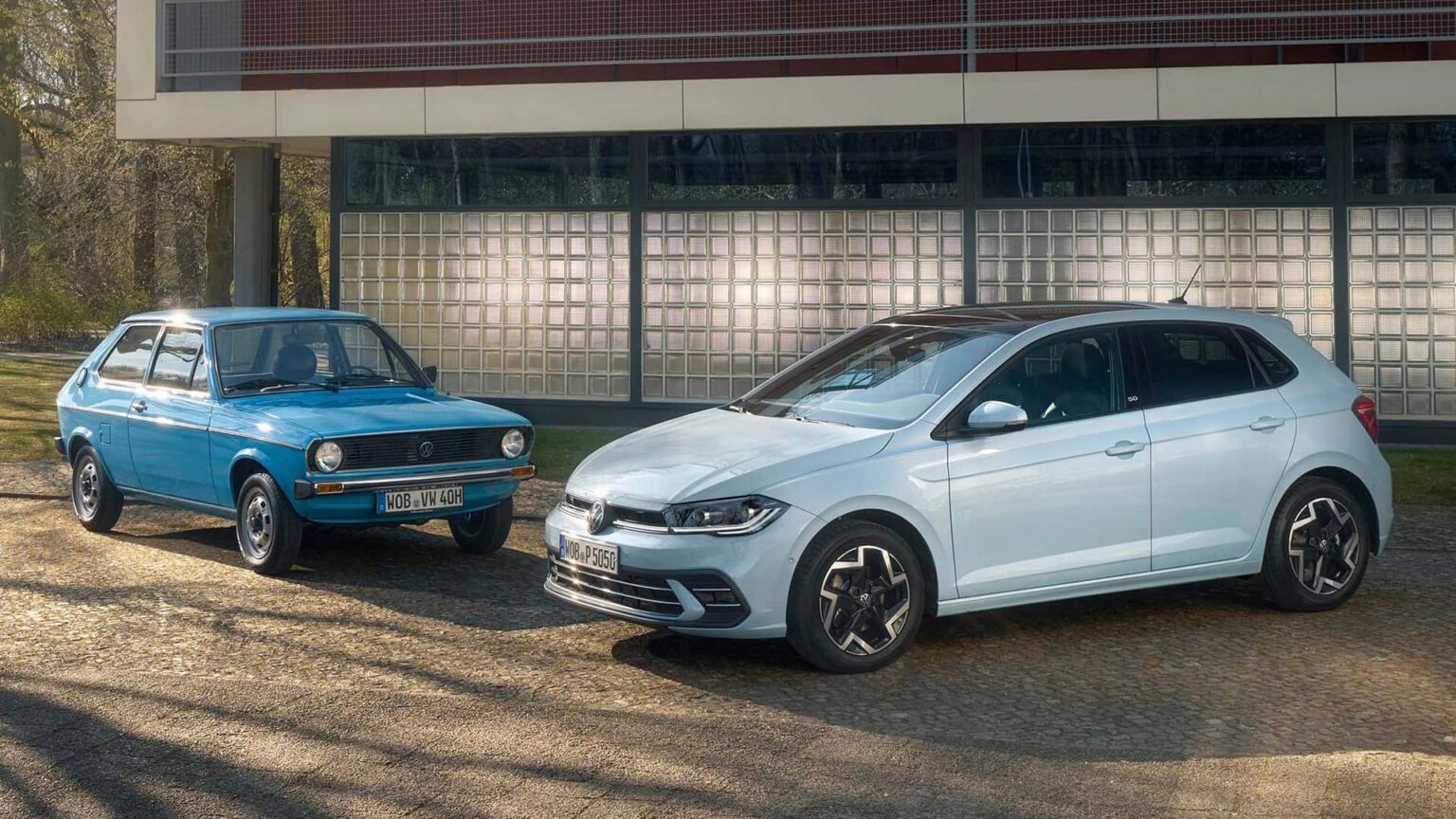The Polo turns 50 this year. Hardly breaking news. Well, Volkswagen is giving the baby Golf a special edition to mark half a century since the original model, penned by Bertone’s Marcello Gandini, came out. It goes on sale today in Germany, but the price tag reminded me just how expensive cars have gotten in Europe in recent years.
The Polo Edition 50 starts at €28,200, equivalent to approximately $32,500 at current exchange rates. Sure, it’s a generously equipped version with heated front seats and whatnot. However, it’s still not a fully loaded configuration. VW charges extra for niceties such as two-zone automatic climate control, keyless functionality, and the panoramic sunroof. More importantly, it’s far from being a GTI in terms of power.
Photo by: Volkswagen
In its most basic form, the special edition makes do with a turbocharged 1.0-liter engine hooked up to a five-speed manual transmission. The three-pot produces just 94 horsepower, but you can upgrade to more potent versions of the 1.0 TSI with up to 114 hp. The slightly more powerful versions can be ordered with a seven-speed dual-clutch automatic transmission. Opting for the DSG increases pricing further.
The Edition 50 may cost about as much as a Golf GTI in the United States, but it’s not even the most expensive Polo available in Germany. The GTI kicks off at €35,450 (nearly $41,000). Step up to its bigger brother, and VW will charge you €45,710 (almost $53,000) for a Golf GTI. Pricing for the Golf R begins at €55,000 ($63,400), and there’s also an R Black Edition for a staggering €59,645 ($69,000).
We’re not done yet. In the Polo and Golf world, the most expensive model was a German market-only Golf R 333, priced at a whopping €76,410 ($88,000). It was even more expensive than an Audi RS3, but nonetheless, VW sold all 333 cars in just eight minutes. Imagine how successful a five-cylinder Golf R would be with the 2.5 TFSI engine. Rumor has it Audi refused to lend its inline-five a few years back.

7
Source: Volkswagen
But these crazy prices are not an isolated case. Cars sold in Europe are generally more expensive compared to the US. The discrepancy largely stems from the value-added tax. VAT is 19% in Germany, but it can be as high as 27% in Hungary. The EU’s average standard VAT rate is 21.8%.
Aside from VAT, extra local taxes based on emissions result in ridiculous prices for some performance cars. That’s why a Honda Civic Type R is over $100,000 in the Netherlands, while a Toyota GR Yaris is also a six-figure car in France.
Europeans may have a greater variety of options than Americans when it comes to choosing their next car, but they’re paying dearly.
Read the full article here



